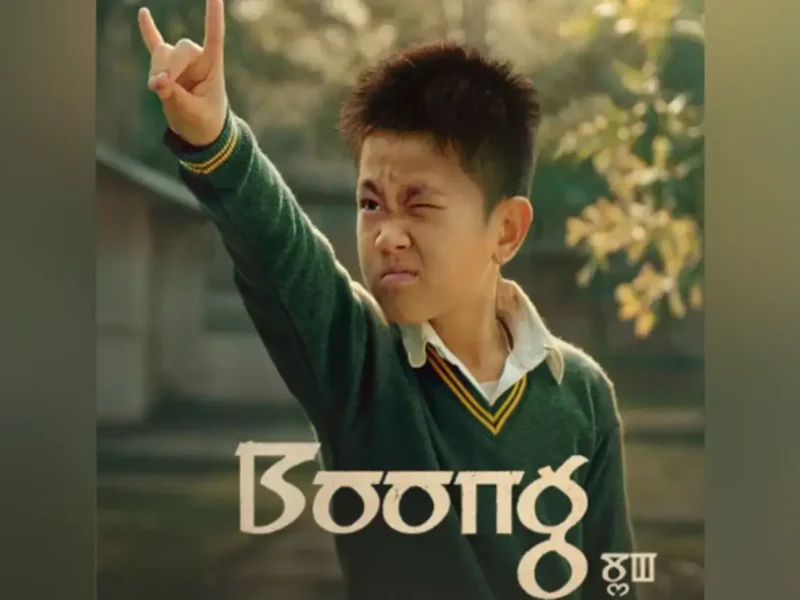
U.S. Secretary of State Antony Blinken Arrives in India, to Discuss Strengthening Indo-Pacific Engagement
U.S. Secretary of State Antony Blinken arrived in New Delhi on a two-day official visit to India on July 27. (ANI photo)
From News Dispatches
NEW DELHI – U.S. Secretary of State Antony Blinken landed in New Delhi July 27 for a two-day visit during which he is set to discuss with Indian officials issues related to bilateral relations, the situation in Afghanistan, strengthening Indo-Pacific engagement – seen as a counter to China – and other matters, including the coronavirus pandemic.
This will be Blinken’s first visit to India after assuming office. In the defense domain, both sides are expected to explore ways and means to deepen their collaboration. This will cover policy exchanges, exercises, and defense transfers and technologies, according to an ANI report.
These would be covered in greater detail during the fourth 2+2 Ministerial Dialogue due in the U.S. later this year.
Among the subjects on the agenda will be a “focus on expanding our security, defense cyber and counterterrorism cooperation,” said the Department of State Bureau of South and Central Asian Affairs Acting Assistant Secretary Dean Thompson.
Thompson also said that Blinken and Secretary of Defense Lloyd Austin look forward to hosting their Indian counterparts in the annual U.S.-India 2+2 ministerial dialogue, later this year.
Indian Ambassador to the United States Taranjit Singh Sandhu will also return to Delhi to participate in the high-level meetings where Afghanistan will remain a top focus, with Thompson underscoring India’s shared commitment to peace and supporting economic development in Afghanistan.
“We expect that all the countries in the region have a shared interest in a stable and secure Afghanistan going forward” and so “we will certainly be looking at talking with our Indian partners about how we can work together to realize that goal, to find ways to bring the parties together, and continue to pursue a negotiated settlement to end the longstanding war.”
“On vaccines, India will continue to push for ensuring open and consistent supply chains for materials and items required for vaccine production, as India ramps up both for domestic vaccination and as for global supplies thereafter,” sources added.
Discussions on deepening Quad engagement are also expected to be a key focus area of talks, with the possibility of a Foreign Ministerial Quad meeting later this year.
India and the U.S. will also take forward the Quad vaccine initiative to enable the supply of vaccines produced in India from early 2022 to countries in the Indo-Pacific region, said a source.
Afghanistan witnessing massive violence will be the central issue, implications of the withdrawal of U.S. forces from Afghanistan, and the need for sustained pressure on Pakistan on terror financing and terror havens will be part of the agenda.
The two sides will also exchange assessments about the Indo-Pacific region, with focus on Covid assistance, economic slowdown and security scenario. The latest developments pertaining to West Asia and Central Asia are also likely to be covered, sources said.
Blinken’s trip will follow a visit by Deputy Secretary of State Wendy Sherman to China and coincide with one to Southeast Asia by Defense Secretary Lloyd Austin.
On July 28, Blinken will meet Indian Prime Minister Narendra Modi and Foreign Minister S. Jaishankar.
The human rights record of India will also be on the agenda, according to an AP report, citing comments last week from Thompson.
Blinken is set to travel to Kuwait on July 29.
India’s Ministry of External Affairs last week said Blinken’s visit “is an opportunity to continue the high-level bilateral dialogue and bolster the India-U.S. global strategic partnership.”
Over the last few years, the ties between the two countries have improved, particularly in terms of their shared interests regarding a rising China. They have steadily ramped up their military relationship and signed a string of defense deals and deepened military cooperation.
In March, U.S. Secretary of Defense Lloyd Austin met top Indian officials and Modi. Both sides agreed to deepen defense cooperation, intelligence sharing and logistics. His visit was followed by climate envoy John Kerry.
Reporting from Islamabad, IANS adds: Just before Blinken’s visit, the U.S. issued a statement, encouraging arch-rivals India and Pakistan to work for a more stable relationship.
“We strongly believe that India and Pakistan’s issues are ones for them to work out between themselves. Washington would continue to encourage better ties between South Asia’s two nuclear-armed neighbors,” said Thompson.
“We are pleased to see that ceasefire that went into place earlier this year has remained intact, and we certainly always encourage them to continue their efforts to find ways to build a more stable relationship going forward,” he added.
(With ANI, AP reports)




